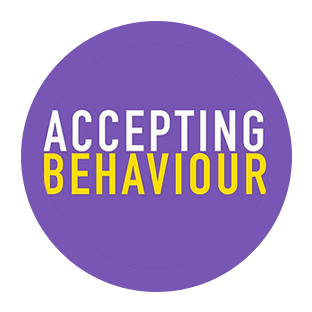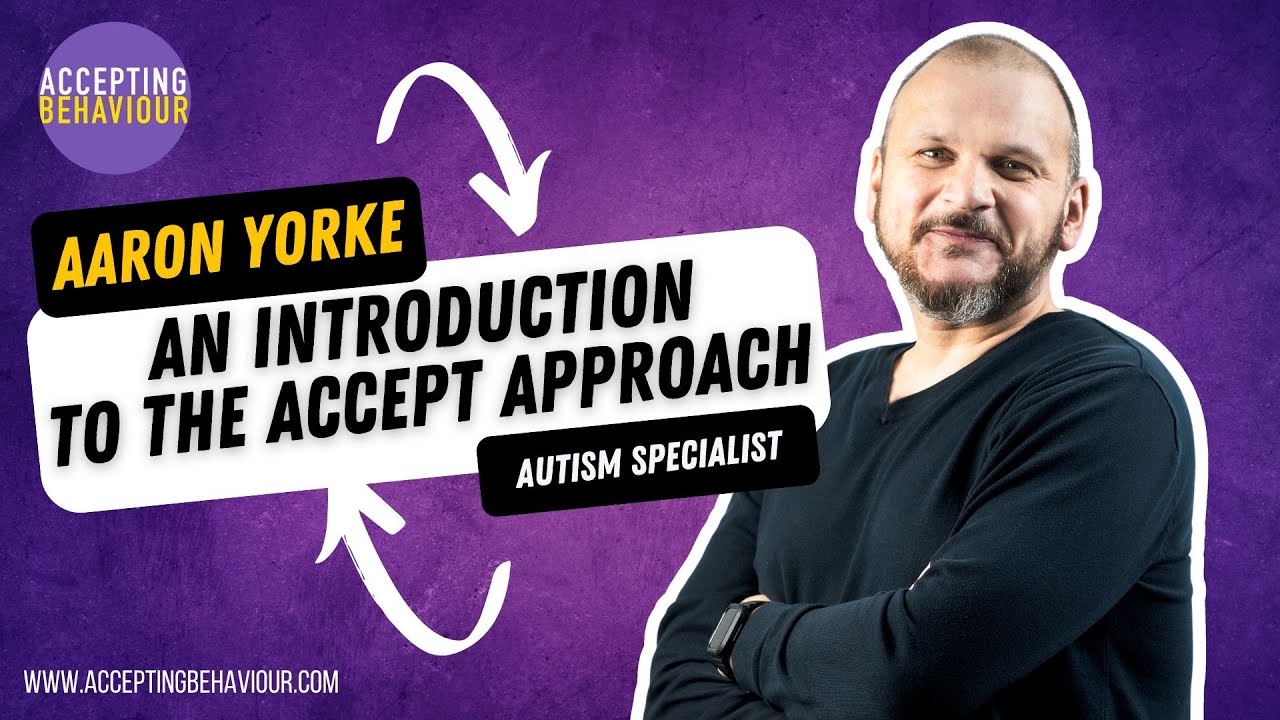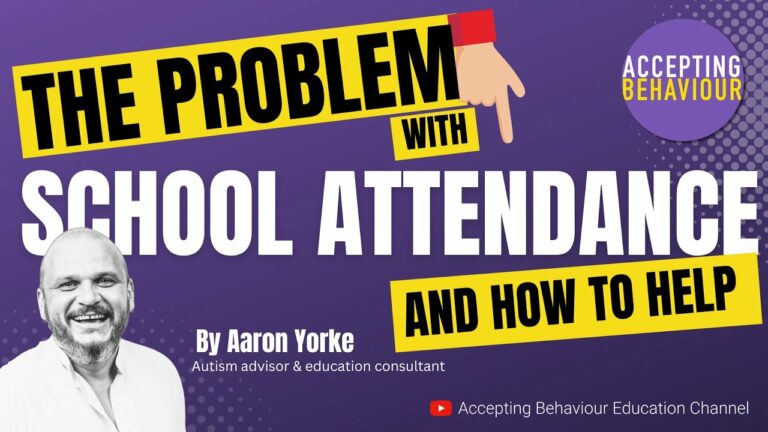Accepting Behaviour
SCHOOLS
Supporting neurodivergent children and young people using acceptance-based strategies.


Lawrence Collins
Head Teacher
Heathfield Knoll School, Kidderminster
Are you a school or setting looking for meaningful, person-centred support?
Our team is made up of experienced specialist teachers and practitioners, all trained in trauma-informed and neuro-affirming practice. We have extensive experience working across early years, primary, secondary, post-16, and EOTAS provision.
Schools and settings can commission our team to carry out individual student assessments, staff consultations, or bespoke training. Our input can be short-term or ongoing, and is always tailored to fit the needs of your learners and staff.
‘Following in the footsteps of Bo Hejlskov Elvén, Ross W. Greene and Andrew McDonnel comes Aaron Yorke with his Accept Approach. Aaron’s enthusiastic delivery coupled with his in-depth knowledge is a masterclass in understanding any individual with an autism diagnosis and how best to work with them.’
LEE BURDEN SENIOR TRAINER AUTISM WEST MIDLANDS
Targeted School Support
We believe that autistic students struggling in education can often be prevented if school settings are supported in the right ways. Therefore, we offer in-school staff training and statutory work to help support students at risk of disengaging from learning.

We know the pressures of teaching.
We have a team of specialist advisors who know how hard it is to teach. Therefore, all our in-school support is designed to be effective for you and your students who are autistic or have social/communication differences. We focus on acceptance-based approaches to help both staff and students better understand their autism/differences and how these can impact their learning during daily school and classroom engagement. We get it. We want to help.
In-School Support
We can work with students through observations and one-to-one support. We offer specific advice and support for staff working with students who cannot access the classroom environment for various reasons. We help staff and students understand their issues and how they impact their learning.
We also provide statutory work, including SEN Code of Practice guidance, TAC and EHC report writing, meeting attendance, and support for parents through the process.
Within all our work, we help schools develop bespoke strategies with both the staff and students to help them overcome barriers to their learning. Throughout our work, we deliver specialist acceptance-based guidance and support for schools to ensure improved outcomes for students of all ages.

We want to help make things better.
Our Approach
Acceptance can be applied practically and effectively to support students who have not responded to traditional communication strategies. Our approach is not to view a problem or issue as a deficit but to focus on ways students can learn to accept themselves within it and then move naturally from it.
We achieve this by applying a strategically designed support method called The Accept Approach (Yorke 2021). The approach focuses on applying four foundations of acceptance to help identify the most effective ways to engage students in their learning. Below is an overview of how the approach works to support students. Aaron Yorke created and developed the Accept Approach, which has been published in The Good Autism Practice Journal. You can access published journal articles by visiting our research page.

We provide training that works.
‘I just wanted to thank you for your contribution to all three days of training this week.
You were fantastic! The evaluations from all three mornings were very positive and many specifically mentioned your ‘inspirational’ contribution.’
Feedback from Birmingham City Wide SENCO training
Training packages
We offer up-to-date Autism/ADHD staff training focused on how you can apply acceptance-based support to help your students more effectively. We teach evidence-based strategies/skills through the delivery of whole-school, face-to-face, or online training. We provide 90-minute, half-day and full-day sessions. We can also provide online or in-school training.
Training Objectives
Increase Awareness: Provide comprehensive knowledge about autism, ADHD and social differences, including the latest research and developments.
Increase a better understanding: Our training delivers knowledge about autism, ADHD, and social differences and how we can apply effective strategies to help support them better.
Promote Inclusion: Equip participants with strategies for fostering acceptance-based, supportive environments in educational, social, and professional settings.
Identify Natural Communication Skills: We train staff to understand that children and young people with social differences do not lack social skills. Instead, we teach you how to identify their ‘natural social skills’.
Acceptance-Based Strategies: Offer insight into Acceptance-Based strategies that are effective, purposeful and beneficial to all involved.
Training Methods
- Interactive Presentations, Group Discussions, role-playing, Case Studies and Real-life Scenarios, Q&A Sessions, and Resource Distribution (Handouts, Toolkits, etc.)
Evaluation and Feedback:
- Pre and Post-Training Surveys, Participant Feedback Forms, Follow-up Sessions (Optional)
Additional Notes:
- All our training can be customised for different groups or specific needs.
- Certificates of completion can be provided to participants.
- Follow-up resources and support can also be made available.
Acceptance based training
This training can be 90 minutes, or half-day and full-day. We can offer this virtually or in-school.
Here are some blog posts for further reading
-
We Need to Stop Pathologising Children Who Can’t Go to School
Every September, social media is full of children heading back to school. Photos of new uniforms, proud parents, and big…
-
We Are Failing a Generation: Why Acceptance-Based Support Deserves a Seat at the Table.
We are in a crisis. It is not a crisis that headlines often scream about, but it is real and…
-
“School Refusal” Is Not What You Think It Is
Why we need to stop blaming parents, pathologising children, and misunderstanding the real issue. We need to retire the term…
-
The Hidden World of Behaviourism in Schools: Why It’s Time for a New Approach
The Hidden World of Behaviourism: Why Our Support for Autistic Children Needs to Change This blog explores the psychological legacy…
-
“Once we accept our limits, we go beyond them.” – Albert Einstein
When I first came across that quote, I did not understand it. I had spent most of my life thinking…
-
Low Demand, High Impact: The Case for Acceptance-Based Support in 2025
Revisiting the Work of Carl Rogers and Abraham Maslow The education system is failing a growing group of students, autistic…








